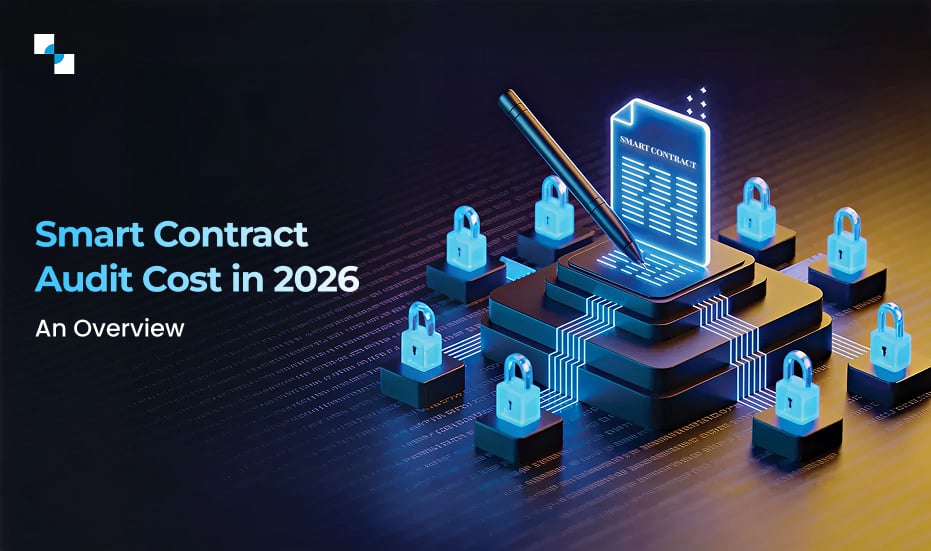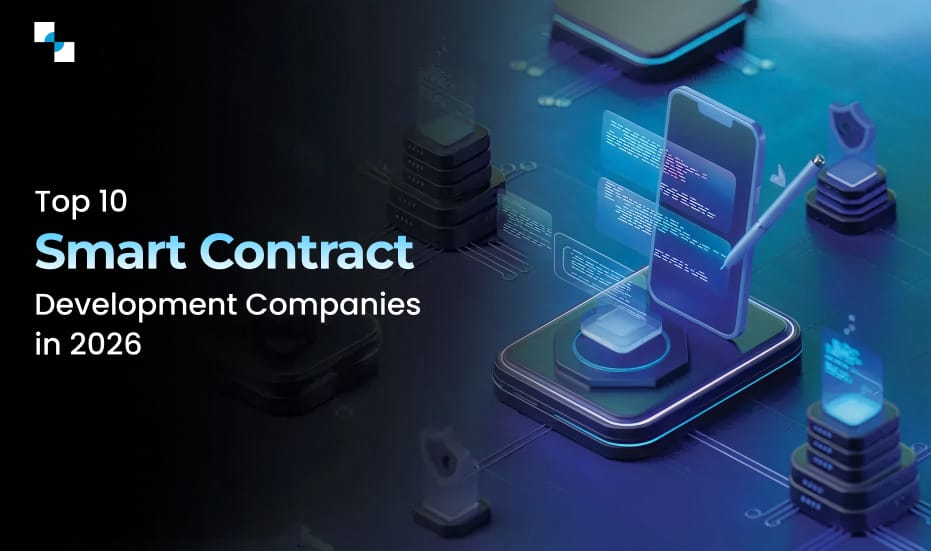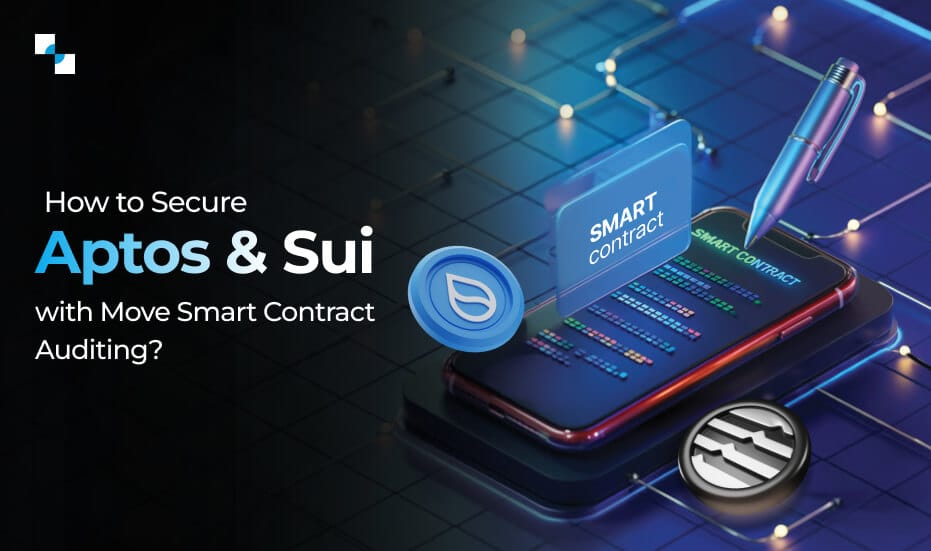The demand for efficient and secure smart contract development platforms is on the rise as businesses continue to embrace blockchain technology in 2024. This blog unveils the top 10 smart contract platforms businesses must invest in 2024. However, the market is flooded with a plethora of options, and selecting an ideal one is crucial for any business.
Things to Consider Before Selecting a Smart Contract Platform in 2024
Blockchain Compatibility
The first and foremost consideration is the compatibility of the smart contract platform with the blockchain network that aligns with your business requirements. Assess the platform’s interoperability with different blockchains and evaluate the benefits of each in terms of scalability, transaction speed, and cost-effectiveness.
Development Language and Tools
The programming language and tools supported by a smart contract platform play a pivotal role in the development process. Consider the expertise of your development team and the ease of learning the language when selecting a platform. Additionally, check for the availability of comprehensive development tools, debugging features, and documentation to streamline the development process.
Security Features
Smart contracts are often targets for malicious activities due to their decentralized nature. Security should be a top priority when selecting a smart contract development platform. Look for platforms that offer robust security features such as formal verification tools, code audits, and bug bounty programs.
Scalability
As your business grows, scalability becomes a crucial factor in choosing a smart contract development platform. Evaluate the scalability features offered by the platform, including transaction throughput, network congestion management, and the ability to handle a growing user base.
Governance and Community Support
Community support and governance mechanisms are indicative of the health and sustainability of a smart contract development platform. Evaluate the level of community engagement, active development, and the presence of a governance model that allows for protocol upgrades and decision-making.
Regulatory Compliance
Ensure that the selected platform aligns with the legal and regulatory requirements of your jurisdiction. Platforms that prioritize compliance features, such as identity verification and privacy-preserving technologies, can help your business navigate the complex regulatory environment and build trust with users and stakeholders.
Cost Considerations
Evaluate the cost structure associated with the smart contract development platform, including deployment fees, transaction fees, and ongoing maintenance costs. Consider the economic model of the platform and how it aligns with your business goals. Some platforms may offer lower transaction fees but higher deployment costs, while others may have subscription-based models.
Top 10 Smart Contract Platforms in 2024
1. Ethereum
- Ethereum utilizes Solidity, a specialized programming language for smart contracts, making it easier for developers to code and deploy decentralized applications (DApps).
- It hosts a well-established ecosystem of DeFi applications, NFTs, and various DApps, offering businesses a diverse range of possibilities and integrations.
- Ethereum’s compatibility with other blockchains and tokens enhances interoperability, allowing businesses to collaborate and integrate seamlessly with a broader blockchain ecosystem.
- Ethereum is continually evolving, with planned upgrades to address scalability concerns, promise improved efficiency, and reduced environmental impact.
- Ethereum places a strong emphasis on enhancing smart contract security, employing audits, best practices, and ongoing community efforts to mitigate risks.
2. Binance Smart Chain
- Binance Smart Chain offers businesses cost-effective solutions with significantly lower transaction fees compared to Ethereum.
- BSC provides fast transaction speeds and high throughput which facilitates quick and efficient execution of smart contracts.
- BSC is compatible with the Ethereum Virtual Machine (EVM), allowing businesses to easily port their Ethereum-based projects to BSC.
- Backed by the Binance exchange, BSC benefits from a large and active community, providing businesses with support, resources, and potential collaboration opportunities.
- BSC has witnessed significant growth in its decentralized finance (DeFi) ecosystem, providing businesses with opportunities to participate in a vibrant and expanding space.
3. TRON
- TRON is renowned for its high transaction throughput, enabling businesses to process a large number of transactions quickly and efficiently.
- TRON’s scalability is a key advantage, as it can handle a significant number of transactions per second ensuring that businesses can scale their applications without performance bottlenecks.
- TRON utilizes a delegated proof-of-stake (DPoS) consensus mechanism, known for its energy efficiency.
- TRON also supports the Solidity programming language, which is widely used for Ethereum smart contracts.
- TRON comes with a growing ecosystem of DApps, providing businesses with opportunities to integrate into a diverse range of applications and services.
4. Arbitrum
- Arbitrum is a layer 2 scaling solution for Ethereum, designed to address the network’s scalability challenges.
- Arbitrum is fully compatible with the Ethereum Virtual Machine (EVM), allowing businesses to seamlessly migrate existing Ethereum smart contracts major code modifications.
- Arbitrum features a secure bridge to the Ethereum mainnet, allowing businesses to facilitate seamless asset transfers and interactions between the two networks.
- Arbitrum provides faster transaction confirmation times compared to the Ethereum mainnet.
- Arbitrum’s lower transaction cost makes it an attractive choice for businesses seeking to optimize expenses associated with smart contract execution.
5. Cardano
- Cardano emphasizes formal verification methods which enhance the security and reliability of smart contracts.
- Cardano’s native support for multi-assets allows businesses to create and manage diverse tokens on the same blockchain.
- Cardano features a decentralized governance model which empowers the community to participate in decision-making processes.
- Cardano’s commitment to continuous research and development ensures that businesses benefit from advancements in the smart contract space.
- With support for multiple programming languages, including Plutus for smart contracts, Cardano provides a flexible and developer-friendly environment.

6. Solana
- Solana is renowned for its exceptional transaction throughput, capable of handling thousands of transactions per second.
- Solana’s scalability is a key advantage, making it suitable for businesses with growing user bases and increasing transaction volumes.
- Solana supports smart contracts with its programming framework which allows businesses to build DApps and execute complex logic on the blockchain.
- Low Transaction Costs: Solana’s efficient consensus mechanism, Proof of History contributes to lower transaction costs.
- Solana achieves fast transaction finality, reducing confirmation times significantly compared to other blockchains.
7. Polygon
- Polygon is a Layer 2 scaling solution for Ethereum that provides businesses with enhanced scalability.
- Polygon offers a variety of scaling solutions, including Proof of Stake and PoA Proof of Authority chains.
- Businesses can benefit from Polygon’s cost-effective solutions, with significantly lower transaction fees compared to the Ethereum mainnet.
- With a rapidly expanding ecosystem, Polygon provides businesses with opportunities to collaborate and integrate into a diverse range of DApps.
- Polygon has a vibrant and supportive community, offering businesses access to resources, tutorials, and a network of developers.
8. Algorand
- Algorand employs a pure proof-of-stake consensus mechanism, providing businesses with a secure and energy-efficient environment for smart contract development.
- Algorand supports atomic transfers, enabling businesses to execute multiple transactions as a single atomic unit.
- Algorand utilizes the Transaction Execution Approval Language for smart contracts.
- Algorand natively supports the creation and management of tokens, making it an ideal choice for businesses involved in tokenization of assets.
- Algorand’s consensus algorithm ensures high throughput and fast transaction finality, making it suitable for businesses requiring quick and efficient execution of smart contracts.
9. Avalanche
- Avalanche supports the creation of subnets and custom blockchains, providing businesses with flexibility to design their blockchain architecture.
- Avalanche allows businesses to customize their consensus mechanisms, enabling them to tailor the network’s performance and security parameters according to their specific needs.
- Avalanche facilitates cross-chain asset swaps, allowing businesses to seamlessly transfer assets between different blockchains.
- With a developer-friendly environment and support for multiple programming languages, Avalanche simplifies the smart contract development process.
- Avalanche is known for its high throughput, achieving fast transaction speeds and accommodating a vast number of transactions.
10. Tezos
- Tezos features a unique self-amending blockchain, allowing for on-chain governance and the evolution of the protocol without requiring hard forks.
- Tezos emphasizes formal verification, enhancing the security and reliability of smart contracts.
- Tezos utilizes a liquid proof-of-stake consensus mechanism, offering businesses a more energy-efficient and environmentally friendly alternative while maintaining network security.
- Tezos incorporates on-chain governance, enabling stakeholders to participate in decision-making processes.
- Tezos supports multiple programming languages for smart contract development, providing businesses with flexibility and allowing developers to leverage their existing skills.
Get Obligation Free Quote
[widget id=”custom_html-3″]
Conclusion
Selecting a smart contract development platform in 2024 requires a careful evaluation of various factors to ensure the success and security of your decentralized applications. By considering blockchain compatibility, development language and tools, security features, scalability, governance, regulatory compliance, and cost, businesses can make informed decisions that align with their specific needs and goals. As the blockchain space continues to evolve, staying informed and adaptable is key to leveraging the full potential of smart contract technology for your B2B applications.







